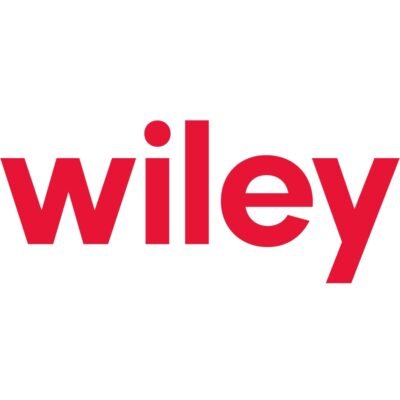Imagine graduating from college with a six-figure investment banking job lined up. You might be planning to backpack across Europe, or just to get as much sleep as possible before the grueling 80+ hour workweeks begin.
Then, perhaps while sitting in a French hostel, a private equity recruiter will reach out to insist that you start interviewing as soon as possible for a job that won’t start for two years.
Welcome to the private equity recruiting storm known as on-cycle recruiting. Nobody, not even the recruiters, knows when it will begin. According to an Amity Search Partners newsletter, the process began on August 29 in 2022, July 21 in 2023, and June 24 in 2024.
Once one firm kicks it off, however, potential candidates (mostly junior investment bankers) can be expected to drop everything to interview, including vacation plans or training for their investment banking jobs, as Business Insider has previously reported.
Unsurprisingly, the practice has its fair share of critics, including executives of the investment banks targeted by PE poachers. JPMorgan CEO Jamie Dimon called the practice “unethical” and said that he might try to eliminate it at his bank.
Even some private equity firms have been sitting out for fear that the process, which used to take place in the fall, has gotten so early that it’s forcing candidates to make decisions they’re not ready to make, industry insiders told BI.
We spoke to recruiters with experience filling entry-level private equity roles to understand how the process works, how to know if it is worth it, and how to prepare.
They said that on-cycle recruitment tends to be a small fraction of private equity recruiting, so there’s no harm in waiting. If you want to try your hand at it, however, you’d better be ready well before the starting gun sounds.
It can’t hurt to wait
On-cycle is not the only path to an entry-level private equity role.
According to numbers compiled by Danielle Strazzini, cofounder at Bellcast Partners, it only results in at most 10% of the roles hired for any year’s associate class in private equity, leaving plenty of room for other interviewing opportunities.
“It’s become such a small part of recruiting,” Strazzini said, adding that “off-cycle is the story.”
Other recruiters agreed. Holly McCarthy, founder of Opus Advisors, said that the majority of her firm’s recent work at the associate level is to fill roles that will start in the next few months, not the next few years.
“The predominance of our search work more recently has been for summer 2025 start dates, not 2026 or 2027,” she said.
Only engage when you’re ready
The only firms hunting during on-cycle are megafunds. The logic is that by going early, these firms can pick off the most qualified candidates.
So, who should think about on-cycle recruiting? Only those who have thoroughly prepared for it.
“There are those kids who know freshman year that they want to go into private equity, whose parent, neighbor, or friend works in the industry, and have been reading the Wall Street Journal since they were in elementary school,” said Strazzini.
In other words, people who know exactly what they want and who already have a job at a top-tier bank. People who interview before they’re ready risk tarnishing their reputations, recruiters said.
“First impressions matter, and candidates should begin recruiting when they are ready,” Shannon Simons, managing director at Opus Advisors said. “You shouldn’t go with the herd.”
She noted that firms are unlikely to re-interview a candidate who didn’t perform well in the next year’s recruiting cycle. “They typically don’t give second looks.”
“There’s a real danger of putting your hat in the ring too early and not performing,” Strazzini said, explaining that it is better to develop your technical and professional skills through your job as a junior banker.
Just don’t wait too long, McCarthy said, explaining that candidates who engage at the end of their two-year banking arrangements may have to answer questions about why they waited, or why they don’t already have an offer.
Be upfront about what you want
You may have clear ideas about your path that align with your current investment banking role, such as healthcare or media mergers. Even if you’re a generalist, it’s important to know what you want before engaging with the recruiting process, Strazzini said.
This extends to considerations about where you want to live, whether in New York, Chicago, or Charlotte, North Carolina, and the size of the fund: a megafund may offer more options for lateral moves, while a smaller firm can offer more hands-on opportunities.
“The more specific you can be, it helps your recruiters, and it helps your interviewers believe you actually want to work at that specific firm,” Strazzini said.
Otherwise, you’ll be inundated with options, and there’s a good chance your interviewers won’t find you as passionate as other interviewees.
Simons gave the example of a candidate who gives generic answers about the consumer sector, suggesting they care more about the fund’s brand name than the specifics of the job. “Compare that to a candidate who said they started reselling sneakers in the fifth grade, or someone can talk for hours about the trends in the beauty sector,” she said.
While candidates may think having a broad search aperture will be advantageous, the on-cycle recruiting process is lightning quick, so time is your greatest resource. Therefore, it’s best to be upfront with your recruiter about what you want.
“Don’t take interviews during on-cycle with firms that you’re not interested in,” Hilary Hurley, managing director at Amity Search Partners, told BI. “It’s a time crunch, and you want to preserve your time for firms that you’re really excited about.”
How to get ready
If you’re ready for on-cycle recruiting, you’ll probably know it. You’ll likely have attended an on-campus recruiting event offered by a recruiter, gone through the top internships, and have a job offer from one of the big-name banks after graduation.
Recruiters also suggest using study guides like those provided, for a fee, by Peak Frameworks or ReCalc. They will give you a chance to try your hand at building a model or passing a case study. If you struggle with these guides, recruiters suggest you don’t jump into the on-cycle recruiting cyclone.
“The test is very binary, pass or fail,” Simons said. “You’ll know if your returns are correct, and if your balance sheet balances. Your model should tie together in a neat bow.”
Candidates should think of their recruiters as not only the firm’s first round of assessment but also as their own career counselor. It’s important to be transparent with your recruiter, said Hurley, as this means they’ll make sure you are applying for the right roles.
“If the candidate is upfront that they would never want to work for a healthcare fund, it doesn’t make sense to take an interview with a healthcare fund,” Hurley said.
Recruiters get paid to place candidates and want to ensure they’re spending their time wisely.
“We are the buffer for firms and they’re hiring us to give them a curated list of high-quality, vetted candidates,” McCarthy said.
It’s also important to do your research on the firms you plan to interview with. Also, try to network before your interviews and send a thank-you note afterward—just don’t overdo it.
“Making a connection at a firm can provide useful insight and demonstrate authentic interest” McCarthy said. “But realize they are busy and may not be able to respond.”






